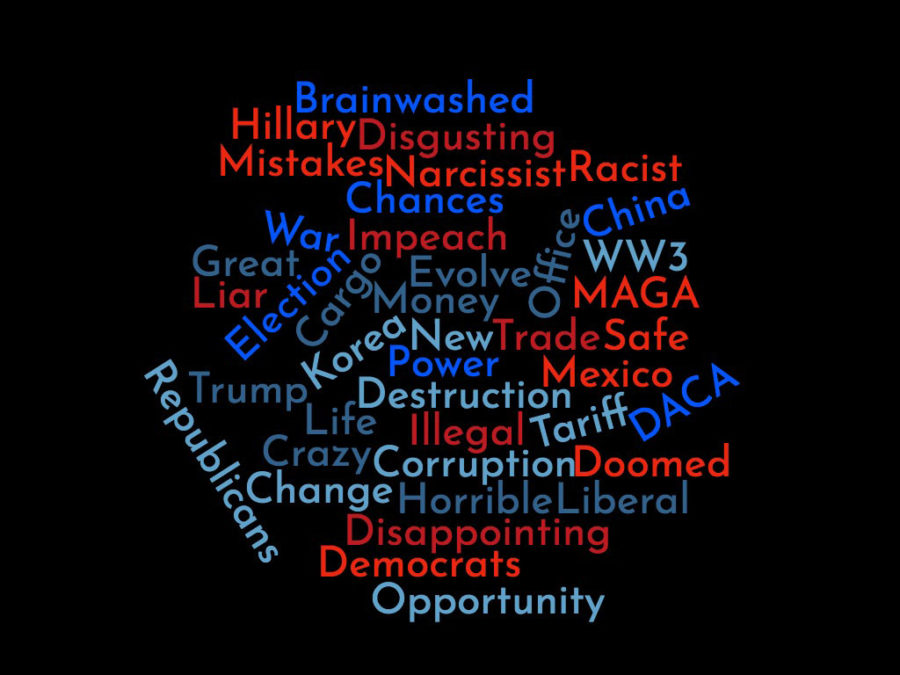Teachers’ Politics: Do They Belong in the Classroom?
November 21, 2018
Many students have voiced their concerns about teachers letting their personal opinions and views into the classroom and at the same time disallowing student voices when it comes to discussing politics.
“As role models in academic discourse, it means we have to honor opinions and focus on learning and sharing diverse viewpoints,” says Heather Wolpert-Gawron, a teacher and debate coach writing on Edutopia, “even if that means a student settles on a viewpoint we do not share.”
“It’s our job to inspire the kids, not convince,” she states.
“For the most part, a lot of my teachers try their hardest to not relay their biased opinion, but often times it just comes out. They are divided with Trump’s presidency, and it’s hard to not bring up,” William Dietz, a senior, said.
It’s not uncommon for educators to express their political views to students, telling students why the right or the left is correct.
A senior who wishes to remain anonymous experienced a specific incident in one of his classes. This student felt his teacher was only talking about one side of an issue and wasn’t representing the whole picture. “Your view is accurate, but you only reflected one side, your side,” the student said to the teacher. The teacher then responded that it wasn’t up for debate and that what the student said was ”irrelevant.”
Sophomore Daniel Aragon states, “I remember there was this one teacher who taught history, and every once in a while he would talk about Trump’s policies and how he was so terrible. This guy was extremely liberal and always bad mouthed the conservatives. The man never had anything positive to say.”
Article 226 of the Santa Fe Public Schools Code of Ethics for All Employees, titled “Political Activity by Employees,” states that during an employee’s work time, ”Discussing personal political views or opinions with students is not allowed.” Another part of the code states that teachers must encourage and respect all student points of view from their perspectives and judgments.
But the Santa Fe High teacher handbook has no mention of these rules. It seems that SFHS teachers are not being made aware of the policies in place, which likely contributes to this issue and, in a way, leaves the teachers vulnerable.
This happens to be a concern for Mr. Marano as well. “Teachers are there to teach and present the material. It’s up to the students and how they perceive it before making a judgement call,” he stated. He added that he has never discussed and will never discuss his political or personal views with students.
Mr. Marano made it clear that teachers’ personal views should not be brought onto campus or into the classroom. He added that religion and politics are the two biggest topics that people need to be careful of. “Approaching it respectfully is better than approaching it with a sarcastic tone,” he said.


